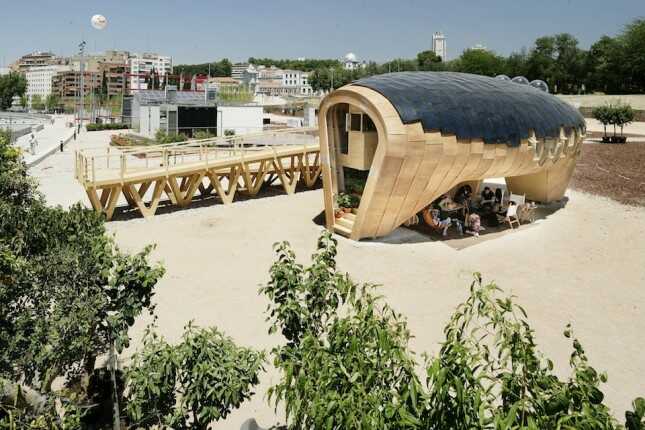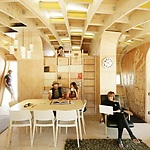The house has introduced significant technological innovations such as the world’s most efficient flexible solar panels, made with both Spanish and American technology, what is being creating a great interest on companies and people who visited the house and it represents a significant breakthrough in the architectural integration of solar systems. “We wanted to overcome the idea that a solar house is a traditional house with solar panels on top and a lot of technology inside. Our project is a full solar house, a new generation of building that visitors have come to appreciate”, says Daniel Ibañez, co-director of the project.
Prize-winning
The Fab Lab House wins Solar Decathlon Europe people’s choice award in 2011. More than 20,000 people have visited the most popular solar house in Madrid.
House for sale
The house has been put up for sale from € 45,000 + VAT and there are already several orders booked. On the web www.fablabhouse.com various house configurations are defined: Cottage (12m2), Shelter (24 m2), Studio (36 m2), House (60 +60 m2) and Villa (96 +96 m2).
The project was carried out with the collaboration of a large group of companies, led by Endesa, Schneider Electric, Visoren, Roca, Santa & Cole, Vinçon and Nani Marquina.


Leave a comment